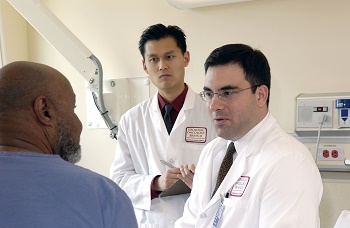
Medical Malpractice Involving Gross Negligence & Informed Consent
Gross negligence and informed consent are two complicated issues that can be difficult to prove but oftentimes come up when discussing malpractice.
Gross negligence refers to a health care provider’s blatant disregard of and indifference to his or her legal duty with respect to the rights of others. To prove gross negligence, there must be evidence that shows that the person who committed the malpractice both consciously and voluntarily disregarded the reasonable care of a patient and went on to cause foreseeable serious injury to the patient. An example might be if a surgeon amputates the wrong body part or leaves a surgical instrument inside a patient during surgery. If gross negligence is successfully proved a judge may award punitive damages which are intended to punish a health care provider for their actions and deter them from committing similar offenses in the future.
Most hospitals provide patients with lengthly forms discussing the procedures that they are about to undergo and make sure that the forms are signed and that the patients has expressly given consent before proceeding with treatment. So, proving that the patient had not given informed consent is usually very difficult.
Patients must be given all of the necessary information regarding the procedure they are going to undergo, including all of the possible risks, prior to the procedure. The information must be presented in a manner that is easy to understand and accessible. It must also be as comprehensive as possible, detailing what the patient should expect regarding the procedure and aftercare. The idea is that the patient should be presented with all of the relevant information so that they can assess the risks and rewards of this treatment plan and give informed consent if they choose to go forward with the procedure.
Doctors should never go forward with a procedure if they are not given informed consent by a patient. Failing to do so may be grounds for civil or even criminal action. In non-emergency situations doctors are only allowed to issue treatment or perform procedures on patients that have given their express permission.
If consent is not given and a doctor does treat the patient, the doctor could be guilty of “unauthorized touching.” To prove unauthorized touching a patient must prove that they did not give consent and that they were aware of the risks in not signing the form. With gross negligence the plaintiff can name all parties involved in the gross negligence case. These parties could include the doctor or surgeon who performed the procedure, whoever caused the injury (if different from doctor or surgeon), the hospital or facility, the owner of the property, and any nurses or staff whose actions contributed to the incident.
The burden of proof in these cases is quite significant. Different states approach gross negligence is different ways, so it is important to discuss your case with an experienced attorney who specializes in medical malpractice cases in your state. Some states will allow victims of gross negligence to make claims of gross negligence in court without bringing in expert witnesses in situations where the negligence speaks for itself. It is important to fully understand the burden of proof and what is expected if you choose to pursue a case of gross negligence or informed consent and pursue damages.
Victims of medical malpractice can ask for damages for the injury they experienced, medical expenses, personal property damage, loss of consortium, lost wages, and pain and suffering. Punitive damages are only awarded in rare cases where gross negligence is sufficiently proved. When a court feels that the damages that have been awarded to a plaintiff are not sufficient the court may award punitive damages. Punitive damages can also be awarded in situations where the defendant acted maliciously or with intention to harm. In some states courts can stipulate that it is the defendants themselves who are to pay the punitive damages to the plaintiff, rather than the insurance.
Missouri Medical Malpractice Attorney
If you have been the victim of medical malpractice in the state of Missouri and believe that gross negligence or lack of informed consent has played a part in your case, contact the Zevan and Davidson Law Firm. Our experienced medical malpractice attorneys will help collect evidence and will work to get you maximum compensation for the injuries that you suffered as a result of the medical malpractice.
Call the Zevan and Davidson Law Firm today at (314) 588-7200.
